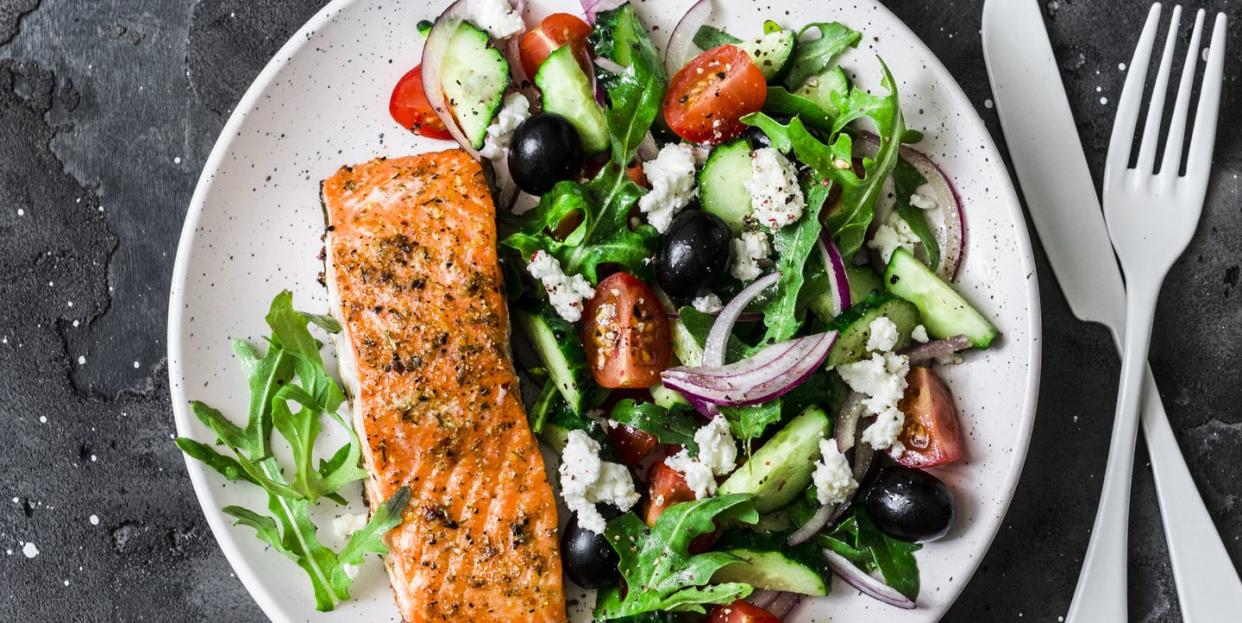Even When Eating Healthy Foods, You Might Have Very Different Results Than Others Eating the Same Meals

"Hearst Magazines and Yahoo may earn commission or revenue on some items through the links below."
According to a new study published in the journal Nature Food, individuals can have different reactions to the amount and type of food compared to others eating the same quantity and meals.
The effectiveness of a diet is influenced not just by genes, but also by lifestyle, exercise, gut microbes, medications, and other factors.
The majority of nutritional advice is general, out of necessity, and some of it does apply to everyone—like eating more vegetables and drinking enough water.
But when it comes to more specific strategies—like how much to eat in order to lose or maintain weight and what you should be eating to achieve that—it can get tricky. New research suggests the issue is complicated because individuals can have different reactions to the amount and type of food compared to others eating the same quantity and meals.
In a small study published in the journal Nature Food, researchers served 19 volunteers four different types of meals comprised of foods ranging from heavy on fruits and vegetables to those typical of a fast food dinner. The people ate these meals over four three-day inpatient periods, which means compliance was closely monitored.
After analyzing urine through molecular profiling technology, researchers found different patterns of chemical composition, suggesting unique responses to the food based on how it was being metabolized. Also, even though everyone ate the same amount of calories, some people excreted more calories through their urine than others, researchers found.
This is because of the way each person’s metabolic pathways are activated, a process often called “metabolic flexibility,” said study coauthor Jeremy Nicholson, Ph.D., professor and pro-vice chancellor of health sciences at Murdoch University in Australia.
“Most nutritional advice is general, but we know that one size does not fit all,” he told Bicycling. “In the future, it will be normal to have individualized diets, but these will be informed by metabolism, not genetics. That’s because through your life, your dynamic phenotype [characteristics that change over time] is influenced not just by genes but also by lifestyle, diet, exercise, gut microbes, medications, and other factors.”
In the same way that long-term health risks can be pinpointed through factors like these, it may be possible to tailor healthy eating advice in the same way, using molecular technology to understand an individual’s metabolic flexibility—and tweak nutrition plans based on that, Nicholson said.
[Gravel! prepares you with everything you need to know to crush it, including the best gear, how to train, and much more!]
Until the day comes when insights like those become commonplace in a way that’s commercially available, it may be helpful to understand that even with healthy foods, you may have a different response than someone else eating the exact same amount and diet.
And, as Nicholson noted, there are metabolic game changers like exercise and gut health that can change how you're reacting to foods, so making healthy changes to those could switch up your metabolic flexibility in the long run.
The bottom line? It’s worth noting how you react to different foods, and realizing that everyone is different—what works for other people might not work for you. Meeting with a sports dietitian to get a plan that’s tailored to you could be a good first step toward eating in a way that benefits your body specifically.
You Might Also Like

